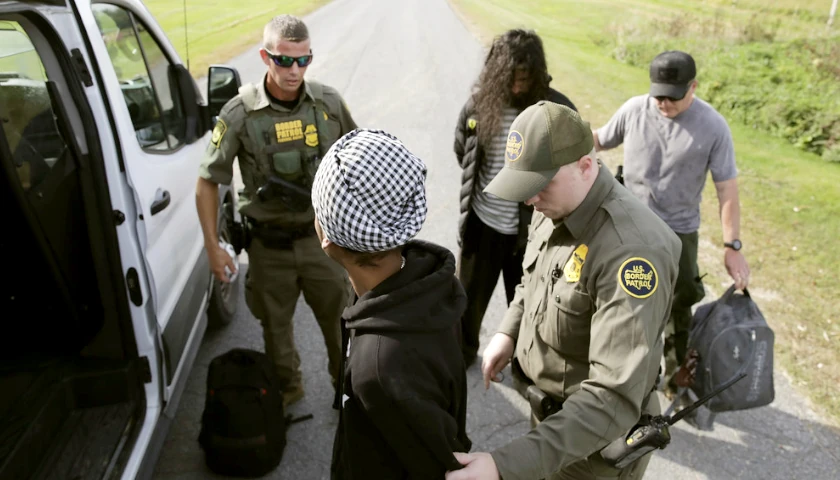In March, Republican gubernatorial candidate Bill Lee, who has made his Christian faith a central theme of his campaign, announced that he will create an Office of Faith-Based and Community Initiatives if he is elected governor. None of his rivals for the Republican nomination have set forward a similar proposal.
President George W. Bush first introduced the notion of integrating “faith-based” initiatives with governmental operations after he was elected in 2000. As those initiatives have evolved over subsequent presidential administrations, and been deployed to various degrees in several state and local governments, a sticky wicket of Constitutional issues and unintended consequences has emerged.
The first is that once such a program is established, all religious groups–Christian, Jewish, Hindu, Muslim, and others–must be given the same opportunity to participate.
The second, and perhaps most troubling, arises when government funding is provided to these faith-based groups to conduct governmental actions and that activity creates the potential for the faith group to proselytize while conducting the government-sanctioned activity.
Lee’s campaign website offers this description of his proposed Office of Faith-Based and Community Initiatives:
The Office of Faith-Based and Community Initiatives will be housed within the Office of the Governor. It will serve as a single resource for our faith-based and community service organizations who wish to be a part of the solution for Tennessee. It will work across every department that serves Tennesseans and enhance the reach of organizations serving people at-risk including areas such as health, education, workforce development, and human services.
This office will serve as single point of contact and liaison for faith-based and community organizations with an established history of service. They will work to identify opportunities for cooperation and coordination between state government and these organizations to help Tennesseans.
The office will be led by a director, who would serve as a liaison across all government agencies within the Executive Branch. The director would report directly to the governor.
Currently, there is a small faith-based office within the Department of Health that focuses solely on faith-based health initiatives. Bill Lee’s plan would increase coordination and work with community, nonprofit and faith leaders to raise awareness of potential government funds and partnership opportunities. (emphasis added)
“As conservatives, we know that government is not the answer. Too often, our leaders work to create government-first solutions to address many of the challenges we face. This comes at the expense of many fantastic organizations that are already doing the work and are looking for willing partners, not taxpayer-funded competitors,” Lee said in the statement describing the proposal on his campaign website.
“People of faith have been called to serve. Faith and community leaders are constantly innovating, and they are often the ones on the front lines battling addiction and improving education. As I continue to travel across this state, I know that engaging them even more will lead to better results. The more we engage with community leaders, the more government recedes,” he added.
The ideas behind the formation of this office began earlier this year when Lee announced in February that he was working with his own in-house faith-based coalition of “over 25 community leaders from across Tennessee” who, according to the campaign’s press release “will advise Lee on how to best engage and recruit faith and community-based organizations to help solve some of the state’s most pressing problems.” (emphasis added)
‘Our faith-based nonprofits and our community organizations all across the state are the boots on the ground doing the real work solving some of our most pressing challenges,’ said Lee. ‘We need to inspire and encourage our faith community to engage in ways that only they can.’
Notably, all 25 members of Lee’s “in-house faith-based coalition” appear to be Christians like himself.
According to Lee campaign spokesman Chris Walker’s statement to The Tennessee Star, candidate Lee has “proposed an Office of Faith-Based and Community Initiatives which would look to partner with non-profit and faith-based groups who are working to solve problems that we are facing in the state.”:
Like President Trump, who proposed a similar White House Faith and Opportunity Initiative, Bill is deeply concerned about the attacks on faith-based organizations across our nation, and his proposal for an Office of Faith-Based and Community Initiatives in Tennessee reflects that concern. The office would be charged with outreach to faith-based organizations to help drive more effective solutions to poverty and root out any failures of the executive branch to comply with religious liberty protections under law. Institutions that push a political ideology would not fall under this criteria.
The White House Faith & Opportunity Initiative was issued by President Trump as an Executive Order. It follows similar initiatives from the Bush and Obama administrations and, like the prior two administrations, allows faith-based organizations to receive federal grants, contracts and “other federal funding.”
It is not clear whether Lee would or can establish his office via Executive Order.
The public-private partnership model and engagement with faith-based and community organizations is not new to government, either at the federal or state level.
At the federal level, public-private partnerships have proved financially fruitful for faith-based organizations such as the refugee resettlement contractors who, at least on paper, are prohibited from proselytizing when providing services.
The infusion of taxpayer funding has not been without unintended consequences such as that described by refugee contractor Episcopal Migration Ministries, admitting that it “receives very little money from the church-wide budget, instead receiving 99.5 percent of its funding from the federal government” for its refugee services contrary to the terms of the underlying agreement.
According to his campaign spokesman, Lee’s proposed Office of Faith-Based and Community Initiatives does not intend to issue grants of state funds to groups identified by this office. Instead, they are looking to “recede” the state government from funding services that volunteers and non-profits currently provide.
While Lee’s proposed Office of Faith-Based and Community Initiatives may not choose at this time to entangle Tennessee’s government financially with private groups, they have said that the new office, “would increase coordination and work with community, nonprofit and faith leaders to raise awareness of potential government funds and partnership opportunities.”
That rather vague statement –“to raise awareness of potential government funds”–does not clarify whether those potential funds are state or federal. In addition, the progression from “raising awareness of potential government funds” to “providing state government funds” is not a particularly huge leap in policy.
Not only does Lee’s proposed office share a name with the one established by President Bush, but assisting faith-based non-profits as stated on Lee’s website, was similarly a feature of President Bush’s Office of Faith-Based and Community Initiatives that prompted a lawsuit by The Freedom From Religion Foundation.
The Foundation alleged that conferences sponsored by Bush’s Office of Faith-Based and Community Initiatives convened to assist these groups in accessing government grants, violated the Establishment Clause for promoting religious groups over secular ones. The case went all the way to the U.S. Supreme Court which ruled against The Foundation on the issue of whether taxpayers who suffered no concrete injury had standing to sue.
With regards to Lee’s plan to “raise awareness of potential government funds and partnership opportunities” the Director of Georgetown University’s Berkley Center advises in Fair Faith-Based Partnerships, that all faith-based groups have to be treated equally – “[n]o favoritism should be shown to specific kinds of sectarian groups.”
In other words, at the risk of a Constitutional violation, no group can be selectively excluded based on its faith tradition.
Where the Bush administration focused on leveling the playing field by helping faith-based organizations compete for government grant money to support social service programming, the Obama administration expanded the office to include a consultative component:
Under the leadership of President Obama and DuBois, the Office is expanding its mission to become involved in gathering diverse opinions and making recommendations about some significant policy issues. Rather than focusing solely on grant-making, the Office is also aiming to build civic partnerships and connect government agencies with local community groups in the policy-making process. The Office also will help to make local community services more efficient, by building networks between local providers and distributing information about best practices that may minimize waste.
This part of Obama’s initiative is more in line with what Lee’s campaign spokesman describes.
To operationalize the policy goals identified by his Office of Faith-Based and Neighborhood Partnerships, Obama established his Advisory Council on Faith-Based and Neighborhood Partnerships which in turn, established six task forces to “make recommendations to the president on how to improve government partnerships with faith-based and community organizations.”
To ensure no discrimination among faith groups, these individual task forces included representation from a wide spectrum of faith groups including Jewish, Hindu, Catholic, Baptist, and Muslim.
In March, Lee stopped in Kingsport and toured the Providence Medical Clinic, “created to offer spiritual support alongside” the free of charge medical care to residents of Sullivan county.
Other faith-based and community organizations helping some of the most needy include a non-profit group called “Murfreesboro Roots 4 Refugees” which partners with Murfreesboro Muslim Youth. This group stepped in to provide help to refugees that had been abandoned by the federal contractor without delivering the promised services.
In Nashville, United Neighborhood Health Services Clinic located in the Conexion Americas community center building, is working to meet healthcare needs “without regard to income or insurance.” A similar healthcare initiative established in 2005, is the Memphis Muslim Medical Clinic which has been providing health services to the wider Memphis community “conducting itself, at all times, in accordance with the Islamic values and principles.”




